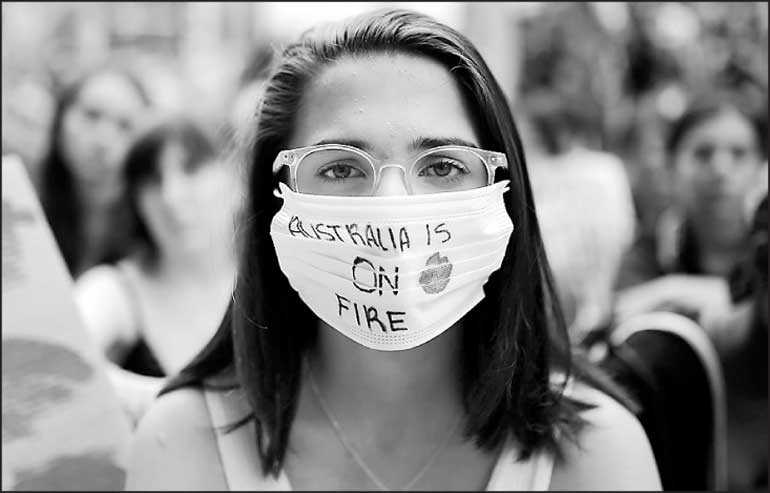Monday Feb 16, 2026
Monday Feb 16, 2026
Saturday, 30 November 2019 00:04 - - {{hitsCtrl.values.hits}}

A student activist poses for a portrait during a 'Solidarity Sit-down' outside of the office of the Liberal Party of Australia in Sydney, Australia - REUTERS
SYDNEY (Reuters): Thousands of Australian students walked out of class on Friday to join rallies demanding stronger action to rein in climate change, which they said is contributing to the country’s bushfire crisis.
Australia has been battling wildfires for weeks, which have killed at least four people, burnt about 2.5 million acres (1 million hectares) of farmland and bush and destroyed more than 500 homes.
The rallies, in Sydney and other major Australian cities, were the first in a series of protests by students across the globe demanding governments do more to protect the environment. The protests come ahead of the annual UN climate conference that starts in Madrid on Monday.
Holding home-made signs, including “The climate is changing, why aren’t we?”, protesters in Sydney accused the government of inadequate action in addressing Australia’s bushfire crisis. Smoke from the bushfires in New South Wales state formed a haze overhead.
Australia’s Prime Minister Scott Morrison has previously rejected suggestions his government is not doing enough to address climate change.
Australia has pledged to cut carbon emissions by 26% from 2005 levels by 2030, but recent data shows emissions are unchanged.
However, data released on Friday showed Australia’s greenhouse gas emissions were roughly unchanged in the 12 months ended June.
The release of the data came as firefighters continued to battle more than 150 blazes still alight across the country that has left more than 5 million people residing in Sydney struggling under hazardous air pollution that has lingered for much of the last week.
While a cool change has eased the threat of more fires, Australia’s Bureau of Meteorology on Thursday said much of the country will suffer from continued hot and dry conditions this summer, increasing the chances of more bushfires.